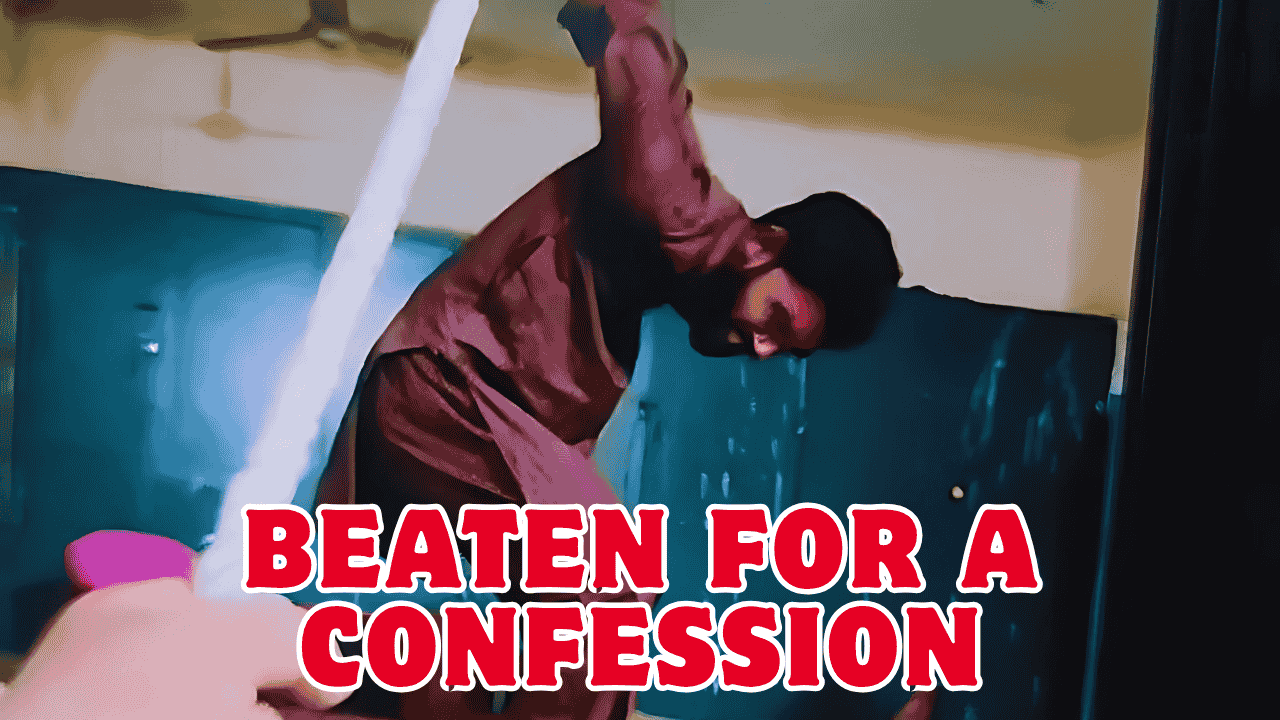By Saleem Mubarak
LAHORE– Faisalabad, a district in the heart of Punjab and dubbed the textile capital of Pakistan, is a city where industry and trade run like clockwork through mills and urban bustle.
But when it comes to law enforcement, the city is still stuck in a time warp, trapped in the shadows of its colonial past.
Faisalabad’s police force–much like their counterparts across the province– keeps beating the same drum by relying on torture as an investigative tool instead of employing modern methods. This approach is both unlawful and ineffective, staining the very fabric of justice.
Hollow slogans of police reforms have been raised over the past two decades or more. All courts have declared any form of torture illegal, Pakistan has signed international conventions, and society has, to some extent, awakened to its legitimate rights. However, the crude reality on the ground remains unchanged.
From Forensics to Fists: The Methods Still in Use
More often than not, it is observed that police show no mercy when a suspect is taken into custody. Investigating officers hesitate to pursue the truth through forensic evidence or methodical investigation, opting instead for slaps, kicks, fists, beatings, stretching, and worse.
Torture of people in custody is not merely an issue of rogue officers–it is a symptom of systemic rot. It is deeply embedded in a policing culture where brutality is treated as efficiency, and the protection of procedural safeguards is seen as an obstacle.
Viral Video Exposes Police Brutality in Faisalabad
A disturbing example of such torture came to light when a sub-inspector at the Factory Area police station in Faisalabad allegedly subjected a man in custody to torture on charges of theft. This incident added fuel to the fire in the debate over police brutality.
Footage that went viral on social media showed the suspect hanging by a rope, being mercilessly beaten, and later forced to exercise–an apparent attempt by the policemen to relax the very muscles they had just brutalized.
When Cameras Capture What the System Ignores
This tragic incident wasn’t an isolated slip-up, it was a blatant display of impunity — caught on camera.
Once the incident surfaced, City Police Officer of Faisalabad Bilal Umar took stock of the situation and ordered the SP of Iqbal Town to get to the bottom of the matter.
The SP conducted the inquiry and found the sub-inspector guilty–showing that the wheels of justice can sometimes turn.
Accountability or Optics? The Real Question
It is praiseworthy that the accused sub-inspector was arrested on the spot and a case is being registered against him. But the million-dollar question is: will he face the music for his alleged brutal conduct that has further tarnished the already tainted image of the police department?
But what if there had been no video? Would accountability have followed?
Police Torture in Faisalabad
At some police stations across Faisalabad and other districts, the idea of ‘investigation’ has gone off the rails, turning into a twisting game of extracting a confession by any means necessary.
Suspects are shackled, hung upside down, stretched on unwoven cots, thrashed with batons, electrocuted, or worse — all under the misguided belief that pain will immediately produce the truth. But both history and criminology prove otherwise, showing that pain only leads to compliance, not honesty.
Pressure to Perform Breeds Abuse
Policemen claim that their workload is overwhelming and that they lack the sophisticated tools–this is partially true– needed to investigate criminals properly. As a result, they often interrogate suspects only to produce results, not to uncover the truth effectively.
The constant pressure of the workload– which could explode at any moment–compels them to force people in custody to confess to crimes. Through such practices, policemen admit they manage to close case files and save their skins from the wrath of their higherups.
Forced Confessions: A Shortcut to Career Safety
Senior police officers demand performance from their subordinates– come what may. In many cases, these forced confessions are used only to close files quickly, rather than to deliver justice for the victims or ensure that real criminals are punished.
As a result, innocent people have been jailed; some have even died in custody. And when the truth finally comes out years later, the trail has gone cold, and the officers responsible have already been promoted, transferred, or retired with complete impunity.
Underfunded, Underequipped, and Unaccountable
It is true to an extent that not only Faisalabad, but the entire police force of Punjab, is running on fumes–facing low budgets, poor forensic facilities, and outdated training manuals. Dispite these deficiencies, resorting to torture is not a sign of limited capacity; it reflects rotten values, where shortcuts are rewarded and impunity is the norm.
In any functioning justice system, the rule of law cannot be thrown out the window just because the job is tough.
No city can claim to be safe when its citizens are unsafe in police custody.
If Faisalabad hopes to emerge as a modern urban center, it must first come to grips with the medieval practices still festering inside the police stations. Because the rule of law can never walk hand in hand with the rule of the fist.

